Todorovden (day of St. Todor) is also known as “horse Easter” because it is a day of bonding between humans and their faithful companions – horses. But the first Saturday of Lent, 16 March, is also a day commemorating St. Theodore of Amasea – a Roman soldier who became a great martyr.
Todorovden in Voynegovtsi village near Sofia combines tradition with horse riding. In the morning jockeys dressed in traditional clothes ride through the village to the horse riding centre where they water the horses and feed them bread, and then give out bread to their guests.
Children coming to the centre can stroke and give the horses carrots, ride them and have their photographs taken with the animals. This year there will be no “kushia” (traditional horse race) at the horse riding centre because veterinarians are recommending that animals be kept separately because of the risk of equine infectious anaemia.
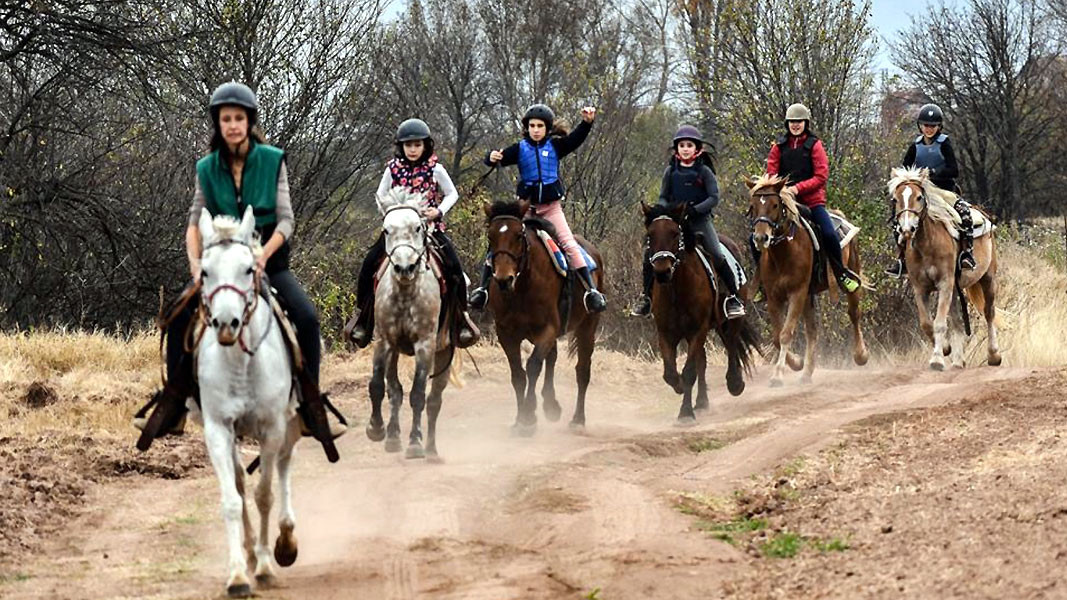
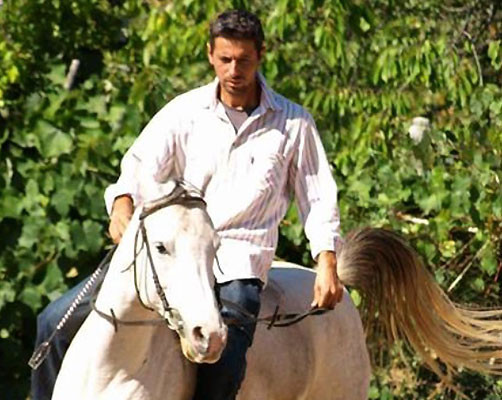 “But to us the bond between horses and humans is more important than the race,” says Ivaylo Ivanov from the horse riding centre in Voinegovtsi. “Horses were important helpmates, and people once relied heavily on them for their livelihood,” he says. “So they honoured horses and took good care of them. By a tradition on Todorovden women would get up early in the morning and bake bread which they then hastened to give away to fellow villagers. It was said that if they were too slow, and were the last to do so, their horses would fall sick. The men would also get up very early in the morning, preen the animals, take them to water and then get them ready for the traditional races (kushia). The winner would make the rounds of the houses in the village for health, and the people would give the horses oats, as well as the traditional boiled maize or peas. The remaining food they would throw into the fields – for a bountiful harvest.”
“But to us the bond between horses and humans is more important than the race,” says Ivaylo Ivanov from the horse riding centre in Voinegovtsi. “Horses were important helpmates, and people once relied heavily on them for their livelihood,” he says. “So they honoured horses and took good care of them. By a tradition on Todorovden women would get up early in the morning and bake bread which they then hastened to give away to fellow villagers. It was said that if they were too slow, and were the last to do so, their horses would fall sick. The men would also get up very early in the morning, preen the animals, take them to water and then get them ready for the traditional races (kushia). The winner would make the rounds of the houses in the village for health, and the people would give the horses oats, as well as the traditional boiled maize or peas. The remaining food they would throw into the fields – for a bountiful harvest.”
Riding lessons for beginners and for more experienced horse riders, children’s summer camps, hypotherapy for children and adults with physical or emotional problems with a qualified pedagogue are just some of the activities organized here.
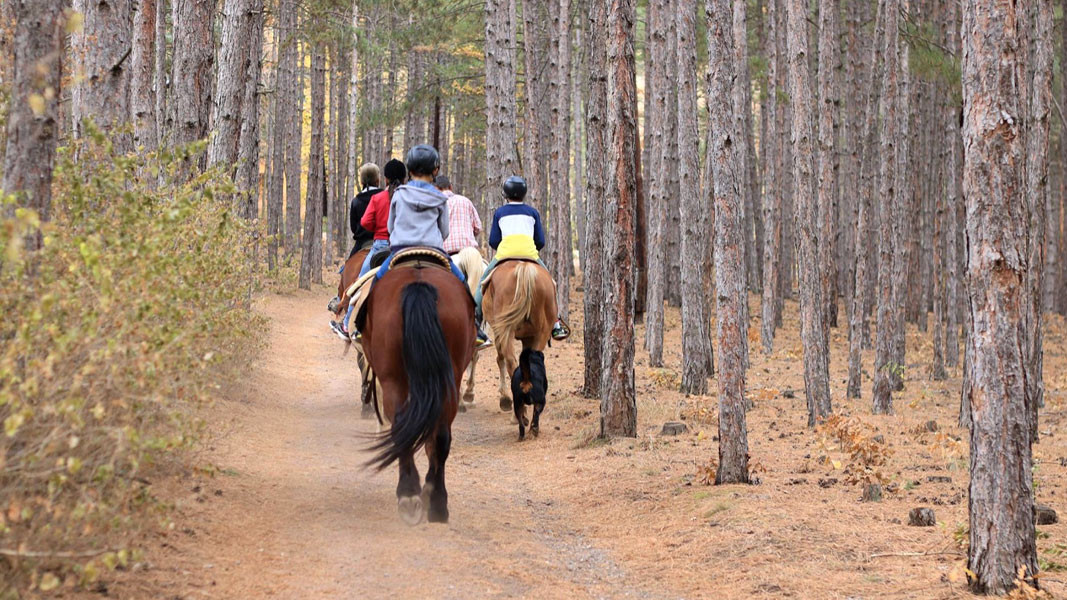
“We work a lot with children, and have been selecting the horses best suited for children for years, horses that can be trained and are dependable,” says Ivaylo Ivanov further. “We have some 30 horses but we do not use all of them with children – some are temperamental and are more suitable for more experienced riders. We mostly breed purebred Arabian, but also cross-breeds which are calmer and more relaxed. These are the horses we use for the children’s riding lessons, and also for people who have never been on horseback before.”
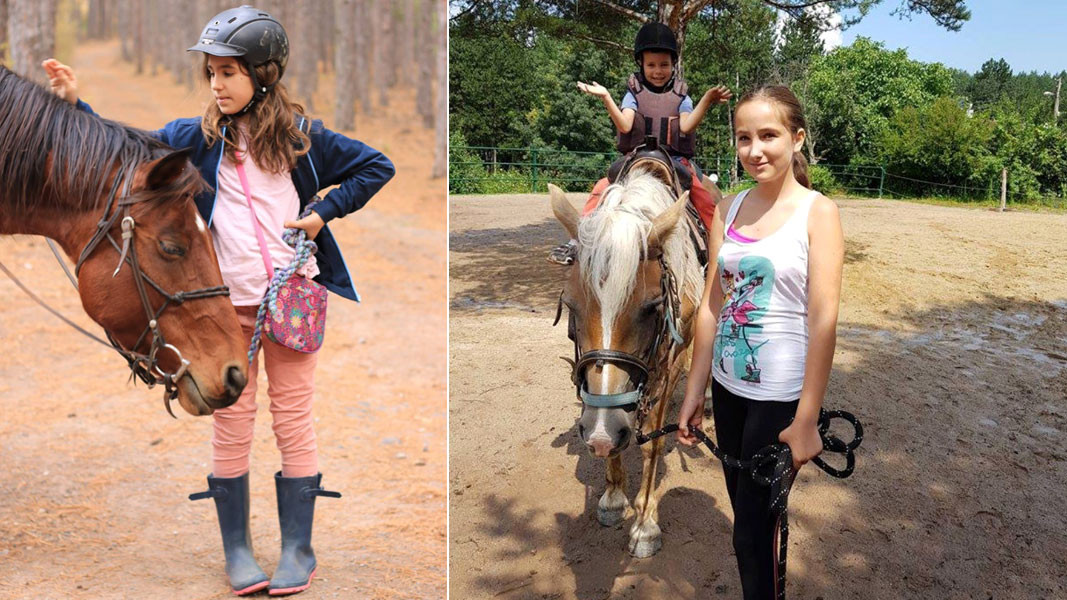
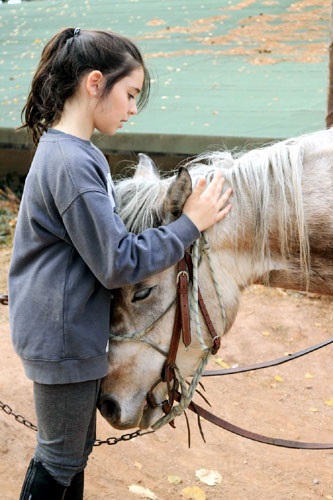 What makes the bond with horses so special?
What makes the bond with horses so special?
“The most important thing in our relationship with horses is trust,” Ivaylo Ivanov says. “They are very smart, very sensitive and very shy animals, and if we do not earn their trust we shall never be able to bond. Trust is earned with a calm temperament, and by treating the animals well. Loyal, very sociable, there is one thing horses value above all else - companionship. They prefer to be in a group together, and that is what makes our horses happy because they live together. And if the horse is by itself, the bond with its owner will be even stronger.”
English version: Milena Daynova
Photos: courtesy of the horse riding centrein Voynegovtsi
The making of knitted products is a traditional craft that deserves a revival and a new life, believes Alexandrina Pandurska, known for her numerous initiatives to popularize cultural and historical places in the Blagoevgrad region. According to her..
The village of Zmeyovo near the town of Stara Zagora is celebrating today, December 21, its traditional Festival of Pelin Wine. According to an old Bulgarian custom, guests will be welcomed with bread and salt on the square in front of the..
Each piece evokes warmth and nostalgia because each is handmade and unique. The silvery reflections on the glass baubles take us back to childhood, when winters were harsh and snow-white and Christmas decorations were made of wafer-thin glass . Nowadays,..
The clock on the facade of the State Puppet Theatre in Stara Zagora has long been a symbol of the city. It was set in motion in 1977 and is unique on..
The year 2024 was marked by political instability and confrontation - not so much over ideas for solving Bulgaria's long-standing governance puzzle, but..

+359 2 9336 661
